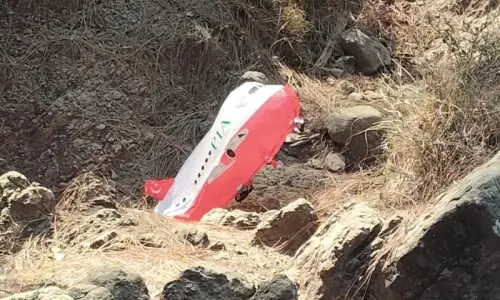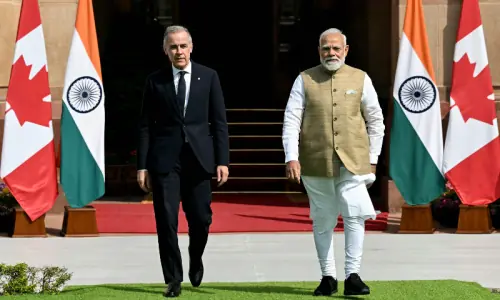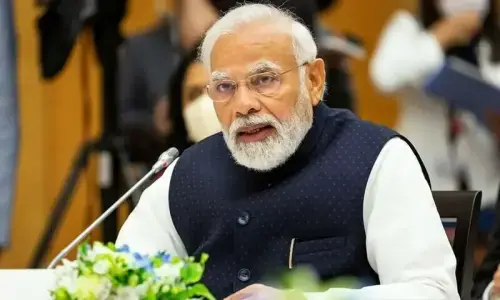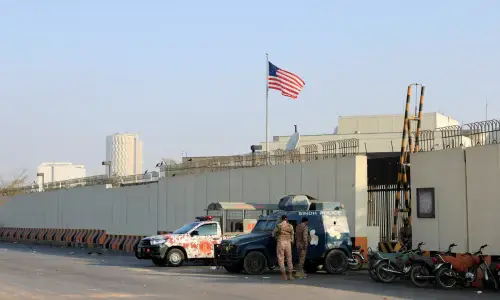KABUL: The Taliban on Tuesday warned the leader of the self-styled Islamic State group against waging a parallel insurgency in Afghanistan, after a string of defections and reported clashes with militants loyal to Islamic State (IS).
The Middle Eastern group, also known by its Arabic acronym Daesh, has never formally acknowledged having a presence in Afghanistan but fears are growing that the group is making inroads in the country.
In a letter addressed to IS leader Abu Bakr al-Baghdadi, the Taliban insisted that “jihad (holy war) against the Americans and their allies must be conducted under one flag and one leadership”.
“The Islamic Emirate (Taliban) does not consider the multiplicity of jihadi ranks beneficial either for jihad or for Muslims,” said the letter signed by the Taliban deputy leader Mullah Akhtar Mohammad Mansoor.
“Your decisions taken from a distance will result in (the IS) losing support of religious scholars, mujahideen... and in order to defend its achievements the Islamic Emirate will be forced to react,” it added.
The letter, published on the Taliban website in Pashto, Urdu, Arabic and Dari, did not elaborate on its threat.
The Taliban have seen defections in recent months— with some insurgents apparently adopting the IS flag to rebrand themselves as a more lethal force as Nato troops depart.
The two groups, which espouse different ideological strains of Sunni Islam, are believed to be arrayed against each other in Afghanistan's restive south, with clashes frequently reported.
Last week, local media reported pitched battles between the Taliban and supporters of IS in eastern Afghanistan, with casualties reported on both sides.
General John Campbell, the commander of Nato forces in the country, last month said the IS group was recruiting fighters in Afghanistan but they were not yet operational.
There have been fears of IS group making inroads in Afghanistan since US-led Nato forces ended their combat mission late last year, after 13 years of fighting the Taliban.
In February, a Nato drone strike killed Mullah Abdul Rauf Khadim, a former Taliban commander and Guantanamo detainee with suspected links to IS, in the volatile southern province of Helmand.
And in March Hafiz Waheed, a successor to Khadim, was killed along with nine others in the Sangin district of Helmand, according to the Afghan defence ministry.
It is not known whether the men had the official sanction of IS, which announced its presence in South Asia a year ago.
































